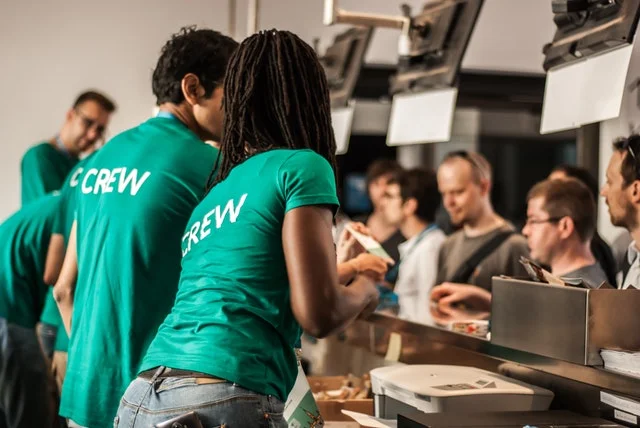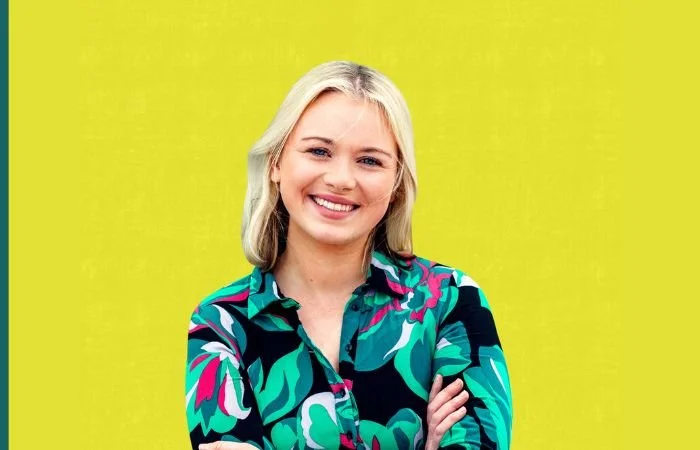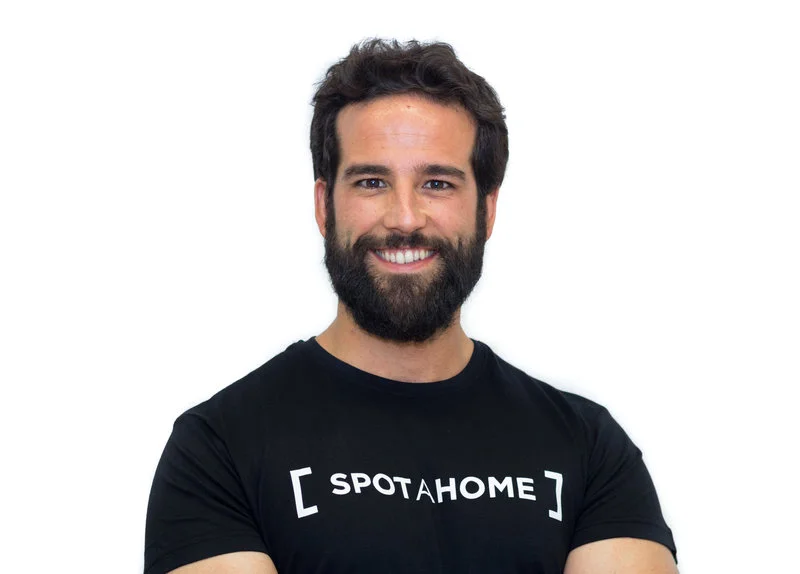Meet the co-founder of Crowdcube

Hi Luke, thank you so much for taking part, please tell us about the man behind Crowdcube.
I’m co-founder and Chief Marketing Officer (CMO) of Crowdcube, which I launched together with Darren Westlake in February 2011. My background is in marketing and public relations, and I’ve worked with blue-chip brands and start-ups, as well as run my own marketing consultancy.
You have not only created a platform that startups benefit from, but it has launched many from the ground up. What is the story behind Crowdcube?
We’d witnessed entrepreneurs with great ideas struggling to raise finance from traditional sources, which spurred us on to look for an alternative approach. Rewards-based crowdfunding was gaining in popularity, and we thought the model could be adapted to equity investment – making it more accessible, affordable and rewarding for both investors and entrepreneurs.
Crowdcube is open to everyone, but can anyone take on the role of being an investor?
Yes, as long as they fully understand the risks, and are over 18 years of age. Crowdcube’s aim is to democratise investment – you don’t have to be wealthy to back a business you believe in, you can ‘dip your toe’ in by investing as little as £10.
Do you remember your initial reaction when you realised; yes, this concept is working?
When investment started flowing through the platform, and we could see people really were backing businesses 24 hours a day, seven days a week, we knew the online model was working. We had our proof of concept, businesses were hitting their targets and funding, and we had our first £1 million raise very early on. Our reaction was “wow” – it felt incredible. There was a real sense of achievement and satisfaction in knowing we were helping businesses to fulfil their potential by raising growth capital; all the sacrifice and effort needed to get to that point had been worth it. There really is no better feeling.
Are there any plans in the future to introduce other types of investments?
Not at present – we’re 100 percent focused on being the UK’s number one equity crowdfunding platform, and developing and growing what we currently offer businesses and investors.
Most entrepreneurs starting out have a lot of challenges ahead of them, especially funding. What would you say to those who are now ready to approach investors?
Get prepared! Make sure you have data that demonstrates momentum – whether that’s member sign-ups, sales or revenue – and which proves there’s a market for your product or service. You also need to have a strong narrative behind your pitch. What is your success to date? How will you spend the money you raise? Securing lead investment will help, if you can do that – it will validate your business plan and give others the confidence to invest.
How do you relax when you’re not running Crowdcube?
I’m a keen triathlete, so running, cycling and swimming! I also completed a Half Ironman last year.
What would be your biggest marketing tip to get out there as a startup?
Track and measure what you do, to tie your marketing spend directly back to effectiveness and the impact it’s having on the business. This is a lot easier with digital marketing than print or PR for example. You need to find out what really works, and continually optimise resource and money in the right areas. Don’t be afraid to test and try things early on – you can do this on a relatively low budget, and it will make sure you learn quickly what’s most effective for you.
How do you think startups can set themselves apart amid all their competitors
A proposition which is based on creating real value that customers want. If you’re solving a problem that needs to be solved, and doing it better than anyone else, you’re differentiating yourself. Keep the message clear and simple – making the proposition over complicated or too sophisticated will be counterproductive.
How important do you think branding is for small businesses?
It does provide a point of differentiation, but it’s easy to ‘over egg’ branding in the early days. Brand is something which evolves over time, and requires investment, so don’t get too hung up on having everything in place at the start. You need a meaningful, appropriate name and corporate identity which reflect the ethos of the founder, and design that looks professional. Everything else, like key messages for example, can be quite fluid; the full brand identity will develop naturally as you grow.
If you could have anyone record the voice message on your mobile, who would it be and why?
Stephen Fry, because he’s a national treasure and will undoubtedly put a smile on every caller's face.
What plans do you have for Crowdcube over the coming 12 months?
We’ll continue to grow our share in the equity investment space, attract larger and more established later-stage businesses to the platform, increase the size of the funding rounds and accelerate investor returns. We also aim to improve the flow of information ‘the crowd’ receives on how their investments are performing.
It was more of a gut feeling that led us to the intersection of digitalisation, mobiles and the democratisation of payments. Paynetics felt strongly about making moving and managing money right for everyone and started building a platform that covers it all.
I’m Simon Goodman and I started out in PR, where I was introduced to the noble Choc Ice working on the Cadburys account. At the time they were looking to upgrade the humble choc ice.
In 2017, Matt launched Borrow A Boat, aka the ‘Airbnb’ of boats, making waves in the charter industry by offering a modern marketplace solution with the aim of making boating more accessible, affordable, flexible and inclusive for all.
Founded in 2021 by Alisa Patotsakaya, Immersive Fox is a text-to-video generation startup that specialises in providing businesses with AI-generated videos for sales and customer communication.
Samantha Gilchrist, co-founder and CEO of The Gilchrist Collection, shares her life as an entrepreneur.
Co-founded by Conrad Poulson in 2014, Huq has been at the forefront of utilising cutting- edge technologies and innovative mobility research methods.
Going from employee to founder was a huge leap of faith. I announced the agency just a few days after turning 26 and like most 26-year-olds, I hadn’t ever owned or run a business before.
Patchwork Health was co-founded by Dr Anas Nader and Dr Jing Ouyang with the mission to make truly flexible and sustainable working a reality for all healthcare staff, amid the current workforce crisis.
After a lifetime working as a project manager for some of the world’s largest tech companies, Jeb Buckler set up Startup Giants PLC to ensure that no good tech concepts should go to waste.
So, I encouraged Ben to officially incorporate The Handbag Clinic as its own independent luxury handbag offshoot in 2013 – all still operated through our ecommerce platform at the time.
I’m Diana Babics, founder of Nourish Awards. I began in finance (accounts and auditing) before deciding this simply wasn’t for me. I then headed off to university as a mature student, initially to study art and design and latterly interior architecture.
greenworkx is co-founded by two education sector workers, Mat llic and Richard Ng, who are passionate about the planet and believe reskilling and upskilling UK workers into green jobs is future-proofing the economy.
Blaise Hope, founder and CEO of Origin Hope, brings two decades of media experience to his groundbreaking content partnership venture.
Co-founded by Nisha Ramisetty and Sam Williams, the idea for Naksha was born in 2020 when cooking became an escape during lockdown.
Charlene Hurlock was inspired by her daughter and her best friend who independently started swapping their pre-loved clothes. Aside from being a Mum, Charlene's background is predominately in global exhibition sales and media advertising.
In North America, Iced Teas (Coldbrew) is a bustling £2bn marketplace. Yet, in the UK, despite being the second fastest-growing soft drink sub-category (after cold brew coffee), there is still a lack of appreciation for brands like Kaytea.
I’m Melissa Gauge, founder of SpareMyTime. I left my corporate role in 2016 to set up a City-based business with a couple of partners and another business by myself, an online platform.
Founded in 2006 by Amelia Peckham and Clare Braddel, Cool Crutches & Walking Sticks aims to empower those who need support to walk.
I’m Gerry Lianos - the co-founder of Raffolux, an online raffling platform that gives people the chance to win amazing prizes for a low cost and support charities close to their hearts.
Jason Tim is the CEO and co-founder of CloudSmiths and has been CEO for the past two years. Prior to this, he held previous roles at the company such as Managing Director and Sales Director.
My name is Lucy Bramley and I'm the founder of Ruched & Ready, one of the UK's leading size inclusive fashion labels helping women embrace their curves and feel confident.
KBF Enterprises was established in 2008 by Managing Director, Kieran Fisher and is the business behind two of the most recognised sports nutrition brands in the UK – Bodybuilding Warehouse® and Warrior®.
Matt Cater is co-founder of Clix Technologies, an innovative new company that offers the UK’s only mobile-first, fully customisable, Web App-based smart lockers.
Ben Maruthappu is a London-based doctor and CEO of Cera, a multi-award winning digital-first home healthcare company, which has grown 100-fold in the past three years, now delivering over 50,000 patient appointments a day.
The Natural Love Company was founded by friends and wedding photographers Ben Foster and Barney Walters. The Cornwall-based business was launched as a result of their previous careers being put on halt by the pandemic.
As the CEO of Botify, Adrien has had both a global and notable career, co-founding Botify back in 2012 and thereafter relocating to the United States from France. Adrien is passionate about shifting the organic search marketing landscape.
Sançar has spent years leading marketing teams at high-profile startups, including Typeform and Hotjar. Early in his career, he struggled to set work-life boundaries and lacked a clear understanding of his personal wellbeing needs and values.
Co-founded by Mike Robertson and Adrian Brown, AbbeyCross is the world’s first B2B trading and compliance marketplace, focused on improving underlying market infrastructure for Emerging Market (“EM”) currencies.
My name is Derk Roodhuyzen de Vries and I am the CEO and co-founder of Fixico. Alongside my business partner Mark van Laar, we created Fixico back in 2014 to revolutionise the car repair industry.
Linkup was founded by the two Manchester-based entrepreneurs, Jack Peagam and Ben Whatson, as they aim to step away from ‘traditional' career paths and combine their shared passion for creativity with business.
Five sustainable gaming companies that provide great inspiration to startups wanting to do good in the world.
From 31 January, businesses moving goods from the European Union (EU) to Great Britain (GB) will need to comply with new UK safety and security declaration requirements.
Its simplicity has made transitioning from traditional tobacco to vaping a breeze for many.
Bitcoin, the digital currency conceived in 2009 by the mysterious Satoshi Nakamoto, is a financial phenomenon. Despite the volatility of global markets, it has demonstrated remarkable resilience.
From university students and young entrepreneurs to senior executives, imposter syndrome remains a common thread in everyone’s personal career journey.
Seeing your ideas materialise, working for yourself, leading others, and becoming a CEO might seem like a dream come true, and indeed, it is for many.
While the benefits of a well-executed PR strategy are evident to practitioners, misconceptions among business leaders often cast PR as fluff, lacking business results.
In an era marked by the cost-of-living crisis, the landscape of consumer behaviour is undergoing a significant transformation. This shift demands a strategic adaptation from businesses.
When it comes to managing spend in a business, the budgeting process can set a high level of accountability. This drives headcount forecasts, subscription-based spend, and key projects throughout the year.
Real-world usage of ChatGPT highlights a challenge that entrepreneurs and business leaders face today in understanding how to harness ChatGPT's capabilities effectively and seamlessly integrate it into business processes to yield tangible productivity.
However, 2022 was the year of the Amazon aggregation downfall. Funding dried up and inflation and rising interest rates hit the highly leveraged aggregators’ debt hard.
It goes without saying that moving away from outdated decision-making processes which rely solely on a handful of senior executives can unlock a realm of opportunity for businesses, but it is useful to begin by considering why exactly there is a need for this change.
Beyond the launch, the challenge then becomes the pursuit to be seen. This is where search engine optimisation (SEO) comes in to act as an ally for your online business. With the high street experiencing dwindling foot traffic, the allure of being a hidden gem has lost its appeal.
When the narrative is almost always the same, it can perpetuate a very particular idea of how a business should be run that has for so long excluded so many.
With the emergence of embedded finance and digital payment solutions, a lot of businesses are experiencing fundamental shifts leading them to become, to some extent, a fintech.
The difference between securing the investment and losing interest often hinges on how effective startups are at conveying their vision and value proposition, so creating a compelling pitch deck has never been more important.
Acknowledging these concerns, Dr. Yousef Alhammadi, the Executive Director of The Abu Dhabi Early Childhood Authority (ECA), sheds light on a groundbreaking approach that empowers parents to safeguard their children’s digital experiences.
Every business has taken on the responsibility to speed up the process of collecting customer payments without compromising security. It is another way to stay competitive in a business environment with decreasing margins and substantial competition.
Edge computing has emerged as one of the most important trends in IT since the advent of ChatGPT and LLMs.
Are you equipped to embrace the future of tax administration? With the UK's Making Tax Digital (MTD) initiative, traditional tax practices are poised for a digital makeover.
Recent instances of Microsoft, TikTok, and Meta facing GDPR fines due to inadequate protection of young people's data underscore the insufficiency of efforts by Big Tech to safeguard the next generation of consumers.
Now, there are opportunities to access accounting software that simplifies the process. This is especially crucial since tax regulations have gone digital, requiring all financial reports, including tax returns, to be submitted online.
Within this exciting landscape, the concept of "smart EVs #1" has emerged, encompassing a range of cutting-edge electric models that combine intelligence, sustainability, and style.
A happy and healthy workforce will bring more productivity, engagement, and loyalty. However, it’s important employer’s realise a ‘1 size fits all’ approach to wellbeing just won’t cut it.
In particular, AI’s potential impact on email marketing cannot be overstated. For businesses, it has the potential to streamline activity, increase engagement, and ultimately drive conversions.
From the humble kitchen table offices to the dynamic innovation hubs scattered across the UK, venture capitalists and angel investors have wholeheartedly recognised the nation's immense potential in spearheading advancements in the tech sector.
You are an early-stage founder, eager to generate buzz and excitement around your business. You live and breathe your startup, but how do you catch the media's attention and inspire them to write about it?
Circular economy is another way of thinking about an economic system that far better matches both the fact that man exists as part of an ecosystem, not separated from it, and how we best create and deliver valuable solutions.
A sales strategy is a plan of action that outlines the approach and tactics a business will use to achieve its sales goals and sell to prospective clients. It details the steps that a company will take to identify, engage, and convert leads.
With this investment, Uvionix will accelerate its product release and expand its market presence across the US and Europe.
The company's technology will have innovative applications in infant nutrition, cosmetic and dermatological, and cognitive industries.
This funding will accelerate Mulder’s mission to tackle the transparency and compliance challenges that complicate the medical device supply chain.
Tangible, a software platform for decarbonizing construction has raised $3 million in a funding round co-led by Prologis Ventures and Pi Labs. Additional investors include Foundamental, Silence VC, and RE Angels.
DBLX, led by CEO and Co-Founder Nicky Hoyland, collaborates with global enterprises to enhance their people experiences. The company’s offerings include immersive digital content, bespoke platform development, and strategic consulting services.
Apheris, the leading federated computing company powering data networks for the life sciences sector, today announced the completion of a Series A funding round, bringing total funding to date to $20.8 million.
Co-investors on deals during 2024 included Investment Fund for Scotland (managed by Maven Capital), Scottish National Investment Bank, Old College Capital, Scottish Enterprise, Par Equity, Mercia and various Scottish angel syndicates.
This funding will propel Criterion Capital's vision of redefining hospitality with its sleep-centric, design-forward hotel concept.
The theme of this year’s BBBAwards is #NEXT. Now in its 11th year, the BBBAwards is marking a new decade of celebration of the outstanding achievements of Black professionals and entrepreneurs in the UK.
Aistetic, a groundbreaking Oxford University AI spinout, has proudly announced its participation in the Techstars Future of Ecommerce Accelerator powered by eBay, a highly competitive program designed to help shape ecommerce.



















































































